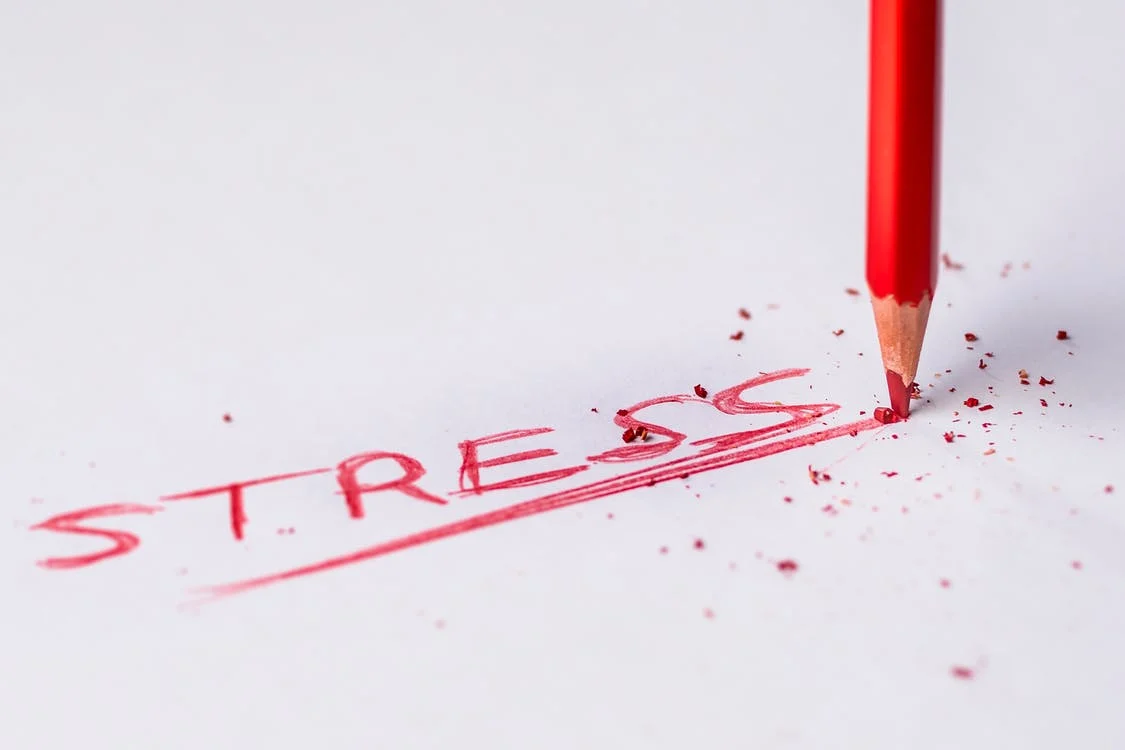We all know that stress isn’t good for our mental health, but you may not know that it can also negatively impact our skin. In this blog post, we will explore the effects of stress on the skin and discuss how to reduce the impact. We’ll look at short-term and long-term effects and how stress can aggravate existing skin issues, so if you’re looking for ways to improve your skin health, read on!
Stress and Your Skin: Underlying Causes and Solutions
Stress is a normal part of life. But when it becomes chronic, it can take a toll on your physical and mental health—including your skin. Research shows that stress can cause or worsen certain skin conditions, including acne, psoriasis, and eczema. It can also lead to premature aging and make existing skin problems worse.
The good news is that there are things you can do to reduce the impact of stress on your skin. By making some lifestyle changes and using stress-reducing techniques, you can help keep your skin looking its best. Here’s what you need to know about how stress affects your skin—and what you can do about it.
Underlying Causes
There are a few ways that stress can impact your skin. First, when you’re stressed, your body produces more cortisol hormone. This hormone signals your body to produce more oil, leading to breakouts. In addition, stress can cause inflammation throughout your body—including your skin. This inflammation can worsen existing skin problems and contribute to premature aging. Finally, when stressed, you may be more likely to engage in unhealthy behaviors like smoking or overeating. These habits can also take a toll on your skin.
Solutions
Fortunately, there are things you can do to reduce the effects of stress on your skin. First, it’s essential to manage stress in healthy ways. This can include exercise, relaxation techniques, and getting enough sleep.
In addition, you should take care of your skin by cleansing it regularly, using a gentle cleanser, and applying a moisturizer. These simple steps can help keep your skin looking its best. If you’re struggling with stress-related skin problems, you must see a dermatologist who can give you further advice on preventing acne scars. In addition, they can provide you with treatments that can help improve your skin.
With some lifestyle changes and the right treatment plan, you can reduce the impact of stress on your skin. Taking care of yourself inside and out can help keep your skin looking its best.
How Stress Affects Skin Physically
Stress can take a toll on your skin. It can cause acne breakouts, eczema flare-ups, psoriasis, and rosacea. And it can make existing skin conditions worse.
But stress doesn’t just affect your skin externally. It also alters how your skin cells function. In one study, for example, scientists found that stress caused changes in how human skin cells processed a protein called filaggrin. Filaggrin is essential for maintaining the skin’s barrier function. When this protein isn’t functioning correctly, it can lead to dryness, inflammation, and other skin problems. So what can you do to reduce the impact of stress on your skin? Here are a few suggestions:
- Get enough sleep. When you’re tired, your skin is more likely to show it. Aim for seven to eight hours of sleep a night.
- Eat a healthy diet. Eating lots of processed foods and sugar can make your skin look dull and can contribute to breakouts. Instead, focus on eating plenty of fruits, vegetables, and whole grains.
- Take breaks during the day. If you’re feeling stressed, take a few minutes to yourself to relax and rejuvenate. Take a hot bath, read your favorite book, or take a walk outside.
- Exercise regularly. Exercise releases endorphins that have mood-boosting effects. It can also help reduce stress hormones like cortisol in your body.
- Practice stress-reducing techniques. Yoga, meditation, and deep breathing can all help reduce stress. Find what works for you and make it a part of your daily routine.
By following these tips, you can help reduce the impact of stress on your skin. Stress is inevitable, but that doesn’t mean its effects must be. Taking care of yourself and reducing stress where possible can help keep your skin looking its best.
When to Seek Help for stress-Related Skin Issues
If you find that your skin is becoming increasingly sensitive, dry, red, or inflamed, it may be time to seek help from a dermatologist or other healthcare provider. These changes could result from stress-related skin conditions like eczema, psoriasis, and rosacea. If you’re unsure what’s causing your skin problems, a visit to the doctor can help you get to the bottom of it. In the meantime, there are some things you can do at home to help ease your symptoms.
Try using a gentle moisturizer to keep your skin hydrated, and avoid harsh soaps or cleansers that could further irritate your skin. You might also want to consider relaxation techniques like yoga or meditation to help reduce stress. If your skin problems are severe or don’t respond to home treatment, don’t hesitate to seek professional help. You can get your skin back to looking and feeling its best with the proper treatment.
When it comes to stress, what shows up on your face is only the tip of the iceberg. In addition to causing skin problems, stress can lead to hair loss, headaches, and difficulty sleeping. So if you’re struggling with stress, don’t suffer in silence – talk to your doctor or a therapist about ways to manage it. Taking steps to reduce stress can improve not only your mental health but also your physical health, including the health of your skin.
Stress Affects your Mental Health
It’s not just your skin that’s affected by stress. Stress can also take a toll on your mental health. You may experience anxiety, depression, and mood swings when you’re under stress. You may also have difficulty concentrating or remembering things. If you’re struggling to cope with stress, don’t hesitate to seek help. Many resources are available to support you in managing stress and improving your mental health. With the right help, you can start feeling better and get back to enjoying your life.
If you think you may be experiencing symptoms of anxiety or depression, talk to your doctor or mental health professional. They can assess your symptoms and guide how to manage them best.
The impact of stress on your mental health
Stress has a psychological impact on your mental health. It can cause problems such as depression, anxiety, or burnout. Stress can also affect your physical health. It can make you more likely to get sick, and it can make existing conditions worse.
You can do things to reduce stress’s impact on your mental health. For example, you can learn how to manage your stress and find ways to relax and de-stress. You can also get support from family and friends or a professional if you need it. Reducing the impact of stress on your mental health is essential for maintaining your overall health and wellbeing.
When we think about the effects of stress, our mind often jumps straight to its physical manifestations: a pounding heart, sweaty palms, or an upset stomach. But stress can also have a significant impact on our mental health. The two are closely linked.
Stress can cause or worsen mental health conditions like anxiety and depression. It can also make it harder to cope with difficult situations and make good decisions. In addition, stress can worsen your symptoms and trigger a relapse if you already have a mental health condition.
The good news is that there are things you can do to manage stress and protect your mental health. Identifying and dealing with stressors in your life is an essential first step. And making time for activities that help you relax and de-stress is crucial for maintaining your mental wellbeing. If you’re struggling to cope with stress, don’t hesitate to reach out for support from family, friends, or a professional. Reducing the impact of stress on your mental health is essential for keeping your mind and body healthy.
Ways To Manage Stress
- Talk to someone you trust about what’s going on in your life. This could be a friend, family member, therapist, or counselor.
- Exercise regularly. Physical activity can help to release tension and improve your mood.
- Get enough sleep. When you’re tired, your body is more vulnerable to stress.
- Eat healthy foods and avoid alcohol and drugs. Substance abuse can make stress worse.
In conclusion, stress can have a negative impact on both your physical and mental health. Therefore, finding ways to manage stress is essential to protect your overall health and wellbeing. If you’re struggling to cope with stress, don’t hesitate to reach out for help from family, friends, or a professional. Many resources are available to support you in managing stress and improving your mental health. With the right help, you can start feeling better and get back to enjoying your life.



